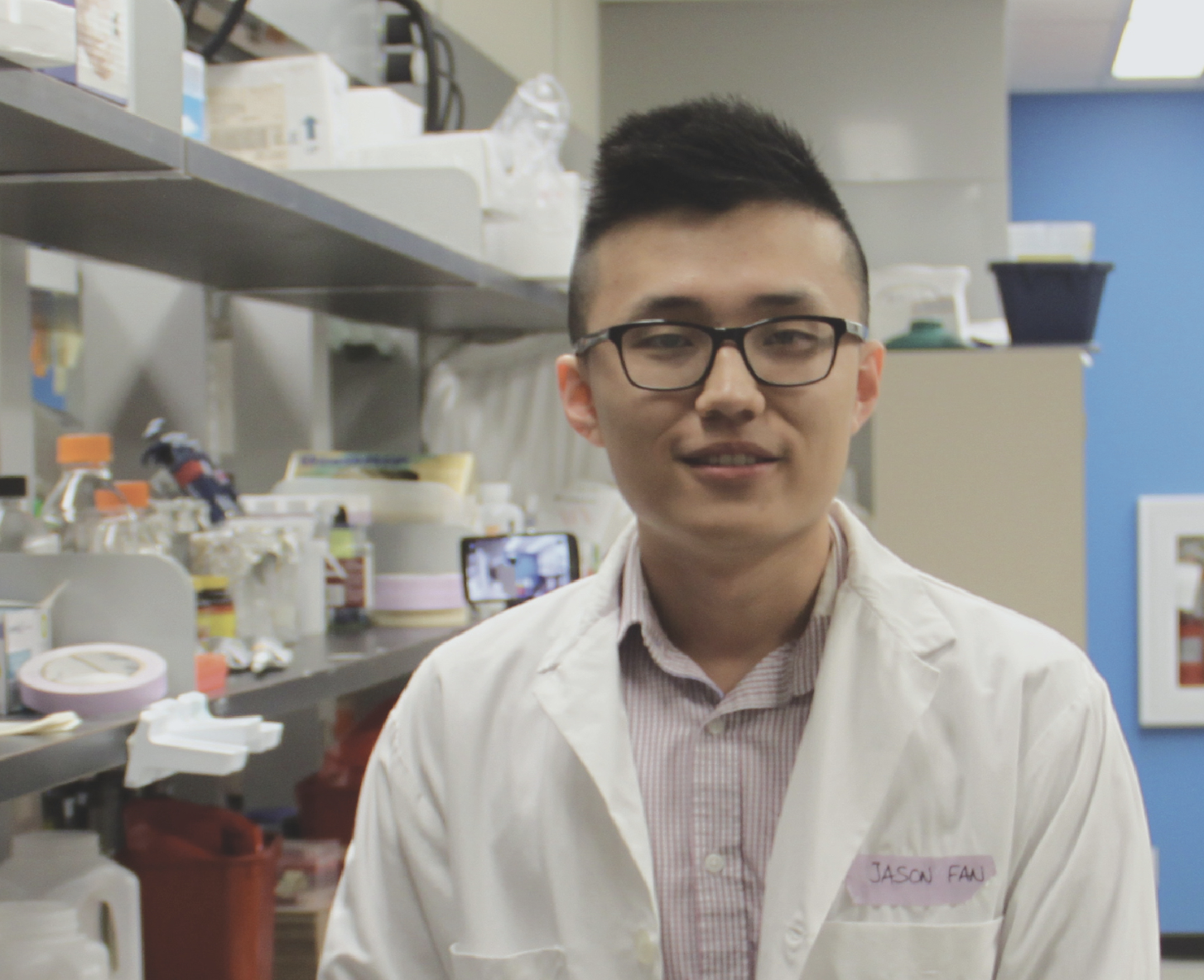Q&A with IIDR Summer Fellowship Recipient Jason Fan

Jason Fan is one of 10 IIDR trainees to have received the Institute’s prestigious Summer Fellowship Award. The highly competitive fellowship, now in its fourth year and worth $1,000, is designed to support students working in the labs of IIDR members during their summer practicum, which runs from May to August.
Whose lab are you working in and what drew you to their research?
I’m currently working in Dr. Dawn Bowdish’s lab. I first joined her lab as a high school student, which was an incredible experience. I learned a lot, and she’s a great mentor, which is why I came back as an undergraduate thesis student.
Describe your research project
The Bowdish Lab focuses on the innate immune system. We work on macrophages, which are the white blood cells that eat up foreign invaders. We also focus on a particular bug called streptococcus pneumoniae, which is the bacteria that causes meningitis and sepsis. Previous research has shown that there are certain compounds on the cell surface of the bacteria that are recognized by macrophages.
However, with respect to the particular strain I am focusing on, we are not quite sure what is being recognized. We do know that there is a certain receptor that is required on the macrophage itself, and if this receptor is not present the macrophages have a hard time killing. So what I am trying to do is figure out what exactly is on the surface of the bacteria that is being recognized by the macrophage.
What are the real world applications of your research?
It is really important to have a firm understanding of how our immune system is being regulated and, in the context of my project, how it recognizes macrophages. Even though my project is a tiny piece of a much larger puzzle, it will shed some necessary light on how the immune system works.
What do you hope to accomplish during your fellowship?
This fellowship provides me with a great opportunity to advance my research. With any luck I will be able to identify this mystery compound on the bacterial surface.
How will this fellowship allow you to do this?
The great thing about the Institute for Infectious Disease Research is its collaborative environment. With this fellowship, I now have the opportunity to work closely with other scientists with similar objectives. Together we will continue to generate great ideas that will get us closer to achieving these objectives.
What is your end goal, in terms of a career?
Given my great experience working in the lab, I think it would be a shame to not pursue a career in research.
NewsRelated News
News Listing

McMaster Health Sciences ➚
Overcoming resistance: McMaster researchers find new utility for old antibiotics
News
January 6, 2025

December 19, 2024


